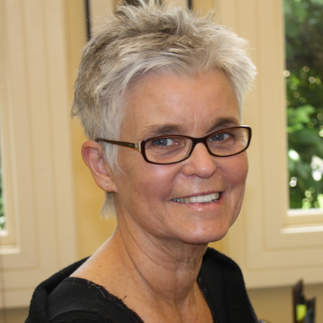
New Zealand and the UK have reached agreement in principle on the key elements of a free trade agreement (FTA). The details of this agreement have still to be finalised and legally verified, and the domestic approval processes must be completed, but the FTA will affect copyright terms here once it is enacted.
“Copyright terms differ depending on what is being protected. Books, for example, are protected for the life of the author plus fifty years. This will be extended to the life of the author plus seventy years and a new scheme will be established to restore to authors income from copyrighted works that are on sold,” says Melanie Johnson, chair of LIANZA Copyright Standing Committee.
The Library and Information Association of New Zealand Aotearoa (LIANZA) has members from across the library and information sector and museums and archives.
“One of the costs to New Zealand of greater access to the UK for our primary produce under the FTA, is the extension of the term of copyright, for authors, performers and producers. This means not only books, but films and music will be locked up for a further 20 years after the death of the authors, delaying the entry into the public domain of culturally significant New Zealand works and the creation of new works based on those works.
“The most significant cultural works produced by New Zealand artists and writers will be delayed from entering the public domain until 2040 at the earliest. Professor Roger Horrocks observed in his 2011 publication that it was only during the Depression and the Second World War that a critical mass was reached of serious thoughtful work in poetry (Allen Curnow and ARD Fairborn), painting (Colin McCahon, Toss Woollaston and Rita Angus) fiction (Frank Sargeson, John Mulgan and Dan Davin) and music (Douglas Lilburn). While Rita Angus is now in the public domain, most are not.
“Early New Zealand films, television and radio shows are starting to emerge from copyright. Locking them up for another 20 years will impact on cultural institutions without the resources to source permissions to use these materials.
“The impact of this on our libraries and library users will be significant. Australian researchers compared the availability of books in countries which had copyright terms of 70 years plus life, with countries such as New Zealand which had 50 years plus life. They showed that books are less available and more expensive where they are protected by copyright than when they are in the public domain. The result is that libraries are obliged to pay higher prices in exchange for worse access.[i]”
When looking into the Trans-Pacific Partnership in 2016, the New Zealand Treasury found that the net cost of copyright term extension to New Zealand consumers would be $55 million per year.[ii]
“Research conducted in the US has also shown that ownership of copyright by publishers does not ensure availability of works, rather works disappear after their initial publication and do not reappear until they are out of copyright[iii].
Extending the term of copyright means less New Zealand content will be available, say LIANZA. It will also exacerbate the ‘orphan’ works problem for collections of music, films and sound recordings, artistic and literary works in libraries and archives. Orphan works are generally works of little or no commercial value, but they can provide valuable pickings for historians and artists.
“It seems that agreeing to extend the term of copyright will come to be seen as a retrograde step if we heed developments overseas. Independent reviews, such as the Hargreaves Report in the UK in 2011, and the Productivity Commission Report in Australia in 2016 have noted the negative impacts of overly long terms. Further, reportedly the Authors’ Guild in the US has said it is against term extension and would likely support a roll back to a term of life-plus-50. This is consistent with research showing that term extensions only benefit copyright owners and not authors.
“Given the Government has 15 years to implement the change, we can only hope that the slow reform of the Copyright Act will result in the full 15 years being taken to incorporate this into law and to counteract the negative impacts on users and creators, an expansion of some of the exceptions to encourage the creation of new works by New Zealanders, says Ms Johnson.”
[i] [Flynn, Jacob and Giblin, Rebecca and Petitjean, Francois, What Happens When Books Enter the Public Domain? Testing Copyright’s Underuse Hypothesis Across Australia, New Zealand, the United States and Canada, June 10, 2019). University of New South Wales Law Journal, Vol. 42, No 4, 2019, U of Melbourne’s Legal Studies Research Paper No. 878 Available at SSRN: https://ssrn.com/abstract+3401684]
[ii] : https://www.treasury.govt.nz/sites/default/files/2016-05/ris-mfat-tppnia-may16.pdf
[iii] .[Heald, Paul, How Copyright Keeps Works Disappeared

Melanie recently retired from the University of Auckland, where she was the copyright officer for nearly 20 years.
She chairs the LIANZA Standing Committee on Copyright (LSCC). The LSCC represents, advises and educates LIANZA’s council and members on relevant copyright matters. The committee represents LIANZA views in submissions and advocacy work, and liaises with the wider GLAM sector and other relevant parties on copyright as required. The LSCC’s focus is the ongoing advocacy, submission writing and lobbying in relation to the Copyright Act Review.


 RSS Feed
RSS Feed